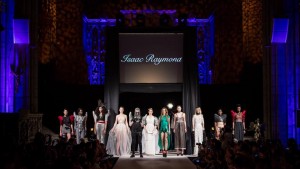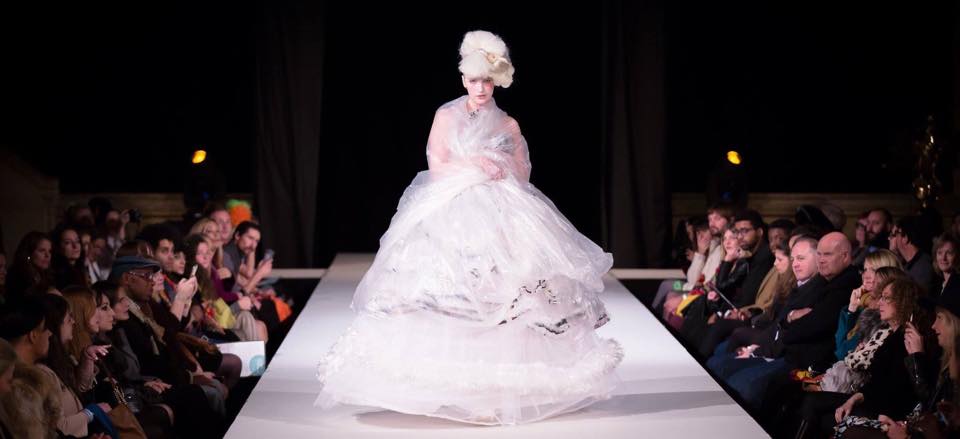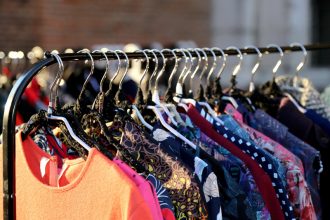Brighton Fashion Week 2015, now 10 years old, was most notable this year for it’s endorsement of a movement yet to fully take off in the UK, ‘sustainable fashion’. So
vehement was their determination to promote the ideology of the cause it encompassed the theme throughout the entire week. Liz Bishop, founder of the event, invited guest
speakers to talk about the state of the fashion industry and what we as individuals can do to play our part moving forward. On top of this during the main event, all
designers were challenged to create and showcase incredible pieces with sustainability in mind, for the chance to win £1000. 
But what is ‘sustainable fashion’ and why should we, as ordinary members of the public be paying attention? Firstly the most important thing to realise about the fashion
industry is that surprisingly it’s the second most polluting industry to the environment after gas and oil. Shocking right? Most of us are also aware that those £3 dresses
you’re buying in bulk from primark and wearing once, are the direct result of the exploitation of millions of anonymous human beings over seas , mainly women, who in many
cases have no option other than to work for poverty wages in often life threatening conditions, in order to support their families. Closer to home, the increase in what I
like to call ‘fast food fashion’ where customers looking to exercise a little retail therapy head straight to outlets offering more garments for less money, continue to
devalue retailers who provide items of real, built to last quality, designed and produced in ethical environments. Even if you’re under the impression that at least you’re
saving a few quid, the reality is that In spite of the economic climate, the UK has been discarding anywhere between 500,000 to 1 million tonnes of textiles to landfill every
year since 2010. Who wants to bet there’s one hell of a lot of ‘atmosphere’ labels amassed in those figures? Buy cheap, buy twice.
Now, we can sit a portion blame on big, nameless corporations all day. To be fair, despite disasters like Rana Plaza where over 1100 people were killed when a factory
supplying UK retailers collapsed, other than the odd high street chain making a token effort to support the cause with the occasional collection of ethically produced
clothing, there’s been little progression in the UK. However, the resounding message BFW enveloped was not one of accusation, but one of education. The whole week was awash
with talks and workshops from global leaders in the field of sustainability, ranging from basic sewing classes all the way to Orsola De Castro talking about her fashion
revolution. The sheer volume of information was admittedly a lot to take in, but for those of you interested in reducing your ‘fashion footprint’ here are some of my top tips
to get you started; 
Look at the clothes, not the price. Not everyone’s got buckets of cash to splash on designer outfits, we get that, but instead of buying loads of cheap tat for £50, look for
that one item that’s going to cost the same, but last a lifetime.
Learn to mend/alter you’re own clothes. Creating a beautiful piece of clothing from scratch should probably be left to the professionals, however a simple understanding of
needle work can help repair and even transform a garment you would otherwise have discarded.
Splurge purchasing. If you absolutely need to go and spoil yourself buy buying loads of new clothes (we’ve all been there) before you head to Primark, have a look in your
local charity shop. Quite often what you end up finding can be quirky and unique, and when you’re finished with it don’t throw it away, just give it back!
Don’t put anything in the bin! The chances are, even if charity shops don’t want it, there’s nearly always a method to ethically recycle clothing you don’t want. Always try
to put in that extra little effort to find suitable means of disposing of them.
Take responsibility. Know where you’re clothes are coming from, if that’s not possible at least avoid putting your money in the pockets of those you are already aware have
suspect manufacturing ethics. Simple awareness of your purchases in future could well have a significant impact to the issue over the course of the rest of your life.
If Brighton Fashion Week highlighted one thing this year, it’s that sustainable fashion isn’t restricted to hippies in brown linen. With a little consideration you can still
be colourful, glamourus, smart, sophisticated, outrageous and even couture while continuing to play your part in reducing the environmental and ethical impact the fashion
industry is having on the rest of the world.
By Guest Blogger Eddie ‘OK’ Adams
Visit Eddie @ https://www.eddie-adams.co.uk/
Picture credit: Malcolm Tam
- A Guide On How To Host A Memorable Corporate Event - March 28, 2023
- How to Wear Y2K Fashion in 2022 - July 19, 2022
- How to Dress like A Pro: A Fashion Guide for Women Playing Golf - June 27, 2022
- How to Dress Like a Pro: A Fashion Guide for Men Playing Golf - June 15, 2022
- How Do You Get Started as a DJ? - May 20, 2022
- What are the Most Popular Furs for Coats, Jackets and Accessories? - February 28, 2022
- How You Can Look 10 Years Younger - September 30, 2021
- How To Give a Gift in Style: 4 Useful Tips - July 13, 2021
- How to enhance your work-wardrobe - June 3, 2021
- Choosing A Dentist: What You Need To Consider - May 27, 2021





